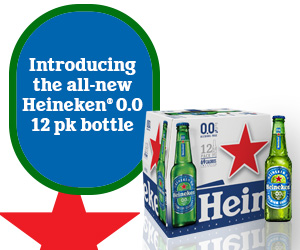

Dale J. Venturini, President and CEO of Rhode Island Hospitality Industry Association.
By Dale J. Venturini, President & CEO, RI Hospitality Association
As a leader in the hospitality industry for more than 35 years, I have witnessed the evolution and transformation of so many aspects of our business. In 2023, the key to success has been found in embracing innovation, sustainability and efficiency.
In a highly competitive market, what sets a restaurant or hotel business apart is its ability to create exceptional experiences. It is no longer just about providing good food, service and accommodation but also in curating memorable moments for guests. Successful businesses focus on personalization, ensuring that every guest feels valued and cared for. Whether it’s customizing menus that cater to specific dietary preferences or offering tailored recommendations based on guests’ preferences, attention to detail and genuine hospitality are crucial in making a lasting impression.
Startups across the industry are pushing boundaries and revolutionizing the ways we experience hospitality. We see emerging technologies like virtual and augmented reality being utilized to create immersive experiences for guests. New businesses are also harnessing the power of artificial intelligence to streamline operations, from chatbots assisting with reservations and queries to predictive analytics optimizing pricing and inventory management. These innovations not only enhance efficiency, but they also add a touch of novelty and excitement to the guest experience.
Sustainability has become an integral part of the hospitality industry and businesses that prioritize eco-friendly practices are gaining a competitive edge. Guests are increasingly conscious of their environmental impact and seek out businesses that align with their values. Implementing sustainable practices—such as energy-efficient systems, reducing food waste through careful inventory management and partnering with local suppliers for farm-to-table initiatives—not only contributes to a better planet, but it also resonates with environmentally conscious guests.
Blending staffing and technology is a delicate balance that can truly elevate the guest experience. While technology can automate certain tasks and improve efficiency, it is essential to strike a harmonious blend with human interaction. Personalized service, warmth and genuine hospitality are irreplaceable. We still work in a high-touch industry, but by leveraging technology to handle routine administrative tasks, staff can focus on delivering exceptional service, building genuine connections and creating memorable experiences that guests will rave about.
To make hospitality businesses more efficient, a multifaceted approach is required. Investing in technology that streamlines operations—such as cloud-based property management systems, contactless check-in/check-out solutions and automated inventory management—can significantly improve efficiency and reduce administrative burdens. Moreover, leveraging data analytics can provide valuable insights into customer preferences and trends, allowing businesses to make informed decisions and tailor their offerings accordingly.
Furthermore, fostering a culture of continuous improvement and investing in staff training is crucial. By empowering employees with the necessary skills and knowledge to succeed, they can confidently handle diverse situations and adapt to changing guest expectations. This, in turn, enhances efficiency and ensures consistent service excellence.
 Collaboration is also vital for increased efficiency. Businesses can partner with other local establishments or share resources to optimize operations. Pooling procurement resources, implementing shared transportation solutions and creating networks for staff exchange are just a few examples of how collaboration can drive efficiency and reduce costs.
Collaboration is also vital for increased efficiency. Businesses can partner with other local establishments or share resources to optimize operations. Pooling procurement resources, implementing shared transportation solutions and creating networks for staff exchange are just a few examples of how collaboration can drive efficiency and reduce costs.
To stand out, businesses must focus on creating exceptional experiences that go beyond the ordinary. Taking advantage of emerging technologies, incorporating sustainable practices, blending staffing and technology, and implementing efficient strategies are all essential steps in shaping the future of hospitality. By embracing these elements, we can create a truly extraordinary industry that continues to delight guests and adapt to the ever-changing landscape of hospitality.
A veteran of more than 35 years in the hospitality industry, Dale Venturini is considered by many to be the voice of the industry in the state of Rhode Island. She has been instrumental in improving the industry’s educational and training programs in the state, as well as enhancing the bottom line of the business she represents. Venturini splits her time between the office and the State House, a constant presence for her membership.











